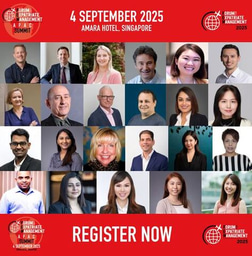Getting the Balance Right – Risk, Retention and Remote Working

Getting the Balance Right – Risk, Retention and Remote Working
Our research indicates that business travel will return to its pre-pandemic levels, in a post-pandemic (post vaccine) world. It will be hard to ignore the rise of the Digital Nomad, increased travel among people who choose to merge professional lives with personal journeys experiencing other locations while not necessarily on vacation.
The massive transition to remote work during the pandemic was a necessity for office-based companies that wanted to maintain operations. But the majority of companies want to continue with some form of remote work post-pandemic. As we discovered during the February 2021 session for the East Coast Chapters, many organisations have developed remote working guidelines and a significant number are developing WfA (Work from Anywhere) policies. While some companies have brought telecommuters back to the traditional office, others have made long-term commitments to remote work (both domestically and globally). This requires enhanced duty of care and employee wellbeing processes and procedures in addition to efforts to sustain the “culture” of the organisation in a widely distributed workforce.
A Gartner survey (Jun-2020) of company leaders found that 80% plan to allow employees to work remotely at least part of the time after the pandemic, and 47% will allow employees to work from home full-time. In a USA PwC survey (Jul-2020) of 669 CEOs, 78% agree that remote collaboration is here to stay for the long-term. Remote working cultures retain and attract talent. Perhaps unsurprisingly, respondents believe shifts towards remote collaboration, automation, low-density workplaces and supply chain safety will have a lasting impact. These new hybrid models will take time to become commonplace.
We believe the role of the experienced Global Mobility Professional will be expanded to better manage the flexibility required by the “new norm”. In reality, technology has been taking us down this path for some time, the pandemic has accelerated these trends and Global Mobility Professionals are well placed to assist their organisations to develop the “right-fit” talent management strategies, policies and procedures. Exciting times ahead, maybe we can finally achieve the right work-life balance.
We look forward to having you join us for this discussion between experts in our Forum for Expatriate Management community.

Speaker Panel:
- Alex Woods, Manager - Global Mobility & Group HR, Perenti
- Anna Arnott, Manager, Deloitte Immigration Services Australia
- Arieta Gavriniotis, Principal Advisor Global Mobility, Rio Tinto
- Ashley Croxford, Australasia - International Mobility Lead, ARUP
- Caroline Hickson, Director Global Mobility Services, KPMG Australia
- Claire Springthorpe, Associate Director International Assignments, Capgemini
- Jenny Buxey, Principal, Reward & Global Mobility, South32
- Kerryn Mendes, Global HR Mobility Specialist Lead, CSIRO
- Nicky Brophy, International Mobility Specialist - MOAI, Ericsson
- Tim Burgess, Co-founder, Shield GIO
Event Details:
When: Wednesday, 31st March 2021
Timing: 12:00pm to 2:00pm AEST (registration/networking 12:00-12:15pm; presentations/discussion 12:15-1:30pm; Q&A to 2:00pm)
Where: Virtual Event via Zoom
Cost - Complimentary event for all members of the FEM member community





Please sign in or register for FREE
Sign in OR sign up to become a registered The Forum for Expatriate Management website user
Subscribe here